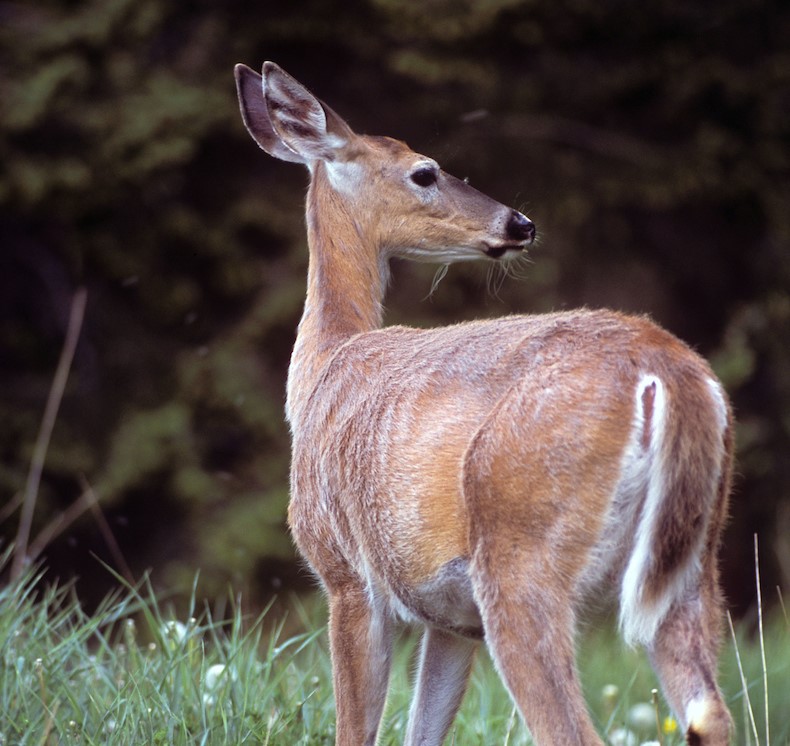Hunting and Fishing News & Blog Articles
How To Donate Venison
Small acts of kindness go a long way in bowhunting. Many bowhunters donate venison to friends, family members or food pantries that spread goodwill far and wide. Those donations provide lean, nutritious, free-range protein to appreciative people while building goodwill for hunting and aiding efforts to manage wildlife.
Benefits of Donating Venison

Deer are abundant in much of the United States. Left unchecked, however, big-game species like elk and deer can overbrowse their habitat, cause crop damage, and become susceptible to disease and starvation. Wildlife agencies depend on hunters to control those populations. Photo Credit: John Hafner.
Many deer hunters donate meat to organizations. Daniel Schmidt, content director and editor-in-chief at Deer & Deer Hunting magazine, said he shoots at least one deer each year to donate. “It’s gratifying,” he said. “When I donate venison, it makes me feel really good that I’m helping someone else out.”
Schmidt has donated venison for over 20 years, and has persuaded many hunting buddies to follow suit. “It’s nice to pay it forward,” he said. “But even if you don’t want the self-accolades, hunters can donate venison for other reasons, like providing food, managing deer populations, and casting hunters in a positive ecological light.”
Provide Needed MealsAccording to Feeding America, 41 million Americans struggle with hunger. Donating venison provides healthy, all-natural protein to those in need. “Life is hard,” said Josh Honeycutt, associate editor at Realtree.com. “Many people out there are feeling the harsh effects life can present. Donating wild game is something we can all do as hunters to give back and help our communities.”
Help Manage Deer HerdsDeer are abundant in much of the United States. Left unchecked, however, big-game species like elk and deer can overbrowse their habitat, cause crop damage, and become susceptible to disease and starvation. Wildlife agencies depend on hunters to control those populations while paying for state conservation efforts through license fees and federal excise taxes on equipment sales.
In effect, hunters provide several benefits with meat donations. Venison donations provide food immediately to communities while providing long-term benefits for wildlife and their habitats. “Hunters do their communities a service” in more ways than one, Schmidt said.
Show Hunting’s BenefitsIf you break society into three groups – hunters, nonhunters and anti-hunters – nonhunters are by far the largest group. Kip Adams, conservation director for the Quality Deer Management Association, believes meat donations help nonhunters view hunting in a positive light.
Adams said donating meat helps people see hunters as caretakers and land stewards. “If we do a good job as hunters, wildlife stewards and responsible advocates for hunting, we’ll have more people to support the hunting community,” Adams said.
How to Donate Venison
Hunters can donate venison in several ways. Visit your state wildlife agency’s website to find nearby donation sites or organizations. Most of them accept deer at no charge. You can also donate to charitable organizations like Hunters for the Hungry or through the QDMA, which has a 5-year goal to donate 40 million meals or 10 million pounds of venison before Dec. 31, 2023. Adams encourages hunters to contact a QDMA regional director to learn more.
Schmidt also suggests hunters consider donating meat to friends, families or other individuals on a more personal level. Give what you can, whether it’s 10 pounds or an entire deer. You don’t have to go through a recognized, regimented program.
“If you don’t have [an ‘official’] deer-donation program in your city, I guarantee there’s someone local who would take the meat,” Schmidt said. He suggests asking around to find someone who wants venison. Then, determine how they want to receive the donation. Do they want the entire carcass? Will they pay processing fees? Work out the details beforehand whenever possible.
To get started, check your state’s venison donation rules and regulations. The laws aren’t complicated. Simply abide by them and follow common food-safety guidelines. Your small acts of kindness will provide long-term benefits to everyone who receives your gifts of venison.
Copyright
© Bowhunting.Net
